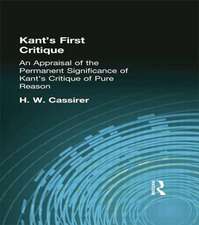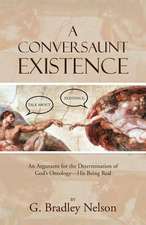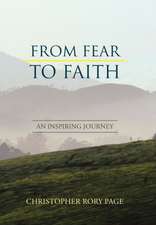The Debt Age
Editat de Jeffrey Di Leo, Peter Hitchcock, Sophia McClennenen Limba Engleză Paperback – 9 iul 2018
| Toate formatele și edițiile | Preț | Express |
|---|---|---|
| Paperback (1) | 356.75 lei 6-8 săpt. | |
| Taylor & Francis – 9 iul 2018 | 356.75 lei 6-8 săpt. | |
| Hardback (1) | 1001.07 lei 6-8 săpt. | |
| Taylor & Francis – 3 iul 2018 | 1001.07 lei 6-8 săpt. |
Preț: 356.75 lei
Nou
Puncte Express: 535
Preț estimativ în valută:
68.27€ • 71.01$ • 56.36£
68.27€ • 71.01$ • 56.36£
Carte tipărită la comandă
Livrare economică 14-28 aprilie
Preluare comenzi: 021 569.72.76
Specificații
ISBN-13: 9781138562585
ISBN-10: 1138562580
Pagini: 246
Dimensiuni: 152 x 229 x 15 mm
Greutate: 0.46 kg
Ediția:1
Editura: Taylor & Francis
Colecția Routledge
Locul publicării:Oxford, United Kingdom
ISBN-10: 1138562580
Pagini: 246
Dimensiuni: 152 x 229 x 15 mm
Greutate: 0.46 kg
Ediția:1
Editura: Taylor & Francis
Colecția Routledge
Locul publicării:Oxford, United Kingdom
Public țintă
General, Postgraduate, and UndergraduateCuprins
List of Contributors; Acknowledgments; The Debt Age: An Introduction, Jeffrey R. Di Leo, Peter Hitchcock, and Sophia A. McClennen; Part I. Theory and History; 1. The Rights to Debt, Sophia A. McClennen; 2. Kant at the Federal Reserve: On the Aesthetics of Quantitative Easing, Peter Hitchcock; 3. Debt and Sensuality, Christopher Breu; 4. The Indebted Man’s Cognitive Mapping: Boundaries and Biohorror in the Neoliberal Debt Economy, Liane Tanguay; Part II. Living in the Debt Age; 5. The Debt Experience, Jeffrey D. Williams; 6. Paying Your Debt to Society: The Neoliberal State and the Logic of Quid Pro Quo, Esther Peeren; 7. Indebted Youth and Neoliberalism, Tyler J. Pollard; 8. Austerity Politics and the Neoliberal Targeting of the Body in Public Education, Kenneth J. Saltman; Part III. Resisting the Debt Age; 9. On Debt Resistance, Jeffrey R. Di Leo; 10. Debt and Financial Literacy Education: An Ethics for Capital or the Other?; 11. Student Debt and the Social Functions of Consolidation College, Christopher Newfield; 12. Confronting the Creditor Class, Andrew Ross; Index
Notă biografică
Jeffrey R. Di Leo is Dean of the School of Arts and Sciences and Professor of English and Philosophy at the University of Houston-Victoria. He is editor and publisher of American Book Review, and the founder and editor of symplokē. His most recent books include American Literature as World Literature (2018) and the Bloomsbury Handbook of Literary and Cultural Theory (forthcoming, 2018).
Peter Hitchcock is Professor of English at the CUNY Graduate Center and Baruch College of the City University of New York. He is also on the faculty of Women’s Studies and Film Studies at the Graduate Center. He is the Associate Director of the Center for Place, Culture, and Politics at the Graduate Center. His recent books include The New Public Intellectual: Politics, Theory, and the Public Sphere (2016; co-edited with Jeffrey R. Di Leo) and Labor in Culture, or, Worker of the World(s) (2017).
Sophia A. McClennen is Professor of International Affairs and Comparative Literature at Penn State University and founding director of the Center for Global Studies. She studies human rights, globalization, media and politics, with two recent books on related topics Is Satire Saving Our Nation? (2014), coauthored with Remy Maisel, and The Routledge Companion to Literature and Human Rights (2015), co-edited with Alexandra Schultheis Moore. Her newest book is Globalization and Latin American Cinema: Towards a New Critical Paradigm (2018). She also has a column with Salon where she regularly covers politics and culture.
Peter Hitchcock is Professor of English at the CUNY Graduate Center and Baruch College of the City University of New York. He is also on the faculty of Women’s Studies and Film Studies at the Graduate Center. He is the Associate Director of the Center for Place, Culture, and Politics at the Graduate Center. His recent books include The New Public Intellectual: Politics, Theory, and the Public Sphere (2016; co-edited with Jeffrey R. Di Leo) and Labor in Culture, or, Worker of the World(s) (2017).
Sophia A. McClennen is Professor of International Affairs and Comparative Literature at Penn State University and founding director of the Center for Global Studies. She studies human rights, globalization, media and politics, with two recent books on related topics Is Satire Saving Our Nation? (2014), coauthored with Remy Maisel, and The Routledge Companion to Literature and Human Rights (2015), co-edited with Alexandra Schultheis Moore. Her newest book is Globalization and Latin American Cinema: Towards a New Critical Paradigm (2018). She also has a column with Salon where she regularly covers politics and culture.
Recenzii
This impressive collection of essays carries out an urgent task: to deepen our understanding of the contemporary regime of debt, not only to analyze how it works but to find ways to dismantle it. Along the way, we learn how debt underwrites so many of the institutions and practices that circumscribe our lives—from law, public policy, and banking all the way to the control of individual bodies and the immiseration of whole populations. The volume also offers a sustained conversation about the problem of student debt, which thus serves as a specific focal point for the critique of neoliberal governance and the project of debt resistance. Let’s face it: debt is a world-historical drag, and it’s time to bury that weight. The contributors to The Debt Age help us to think about how to make that happen.
Richard Dienst, author of The Bonds of Debt: Borrowing Against the Common Good
To call this book timely would be a gross understatement. Among the metrics of injustice that have arisen to make sense of our situation over the past decade, debt stands virtually alone in its ability to organize so many of the subtle structures of oppression and so much of the agency available to their victims. Matching its contributors beautifully to the diverse kinds, histories, scales, and politics of debt, this collection has the force and the sparkle of a single-authored volume, and an inspired one.
Bruce Robbins, author of The Beneficiary
These superb essays by widely renowned social and cultural theorists provide an essential cognitive mapping of the role of debt within the emerging oligarchic capitalism. Debt represents a speculative mode of capturing future social labor as present value. Debt not only encumbers and disciplines subjects, it produces a constellation of symbolic interactions that limit and constrain sociality and everyday life. This book is essential reading for critically apprehending our debt age and for imagining new tools by which we might smash the creditocracy.
Alexander J. Means, Assistant Professor of Social and Psychological Foundations of Education, SUNY College at Buffalo
Richard Dienst, author of The Bonds of Debt: Borrowing Against the Common Good
To call this book timely would be a gross understatement. Among the metrics of injustice that have arisen to make sense of our situation over the past decade, debt stands virtually alone in its ability to organize so many of the subtle structures of oppression and so much of the agency available to their victims. Matching its contributors beautifully to the diverse kinds, histories, scales, and politics of debt, this collection has the force and the sparkle of a single-authored volume, and an inspired one.
Bruce Robbins, author of The Beneficiary
These superb essays by widely renowned social and cultural theorists provide an essential cognitive mapping of the role of debt within the emerging oligarchic capitalism. Debt represents a speculative mode of capturing future social labor as present value. Debt not only encumbers and disciplines subjects, it produces a constellation of symbolic interactions that limit and constrain sociality and everyday life. This book is essential reading for critically apprehending our debt age and for imagining new tools by which we might smash the creditocracy.
Alexander J. Means, Assistant Professor of Social and Psychological Foundations of Education, SUNY College at Buffalo
Descriere
This collection of essays, by some of the most distinguished public intellectuals and cultural critics in America explores various dimensions of what it means to live in the age of debt. Their findings are sure to become required reading for anyone who wants to understand what it means to live in The Debt Age.


























